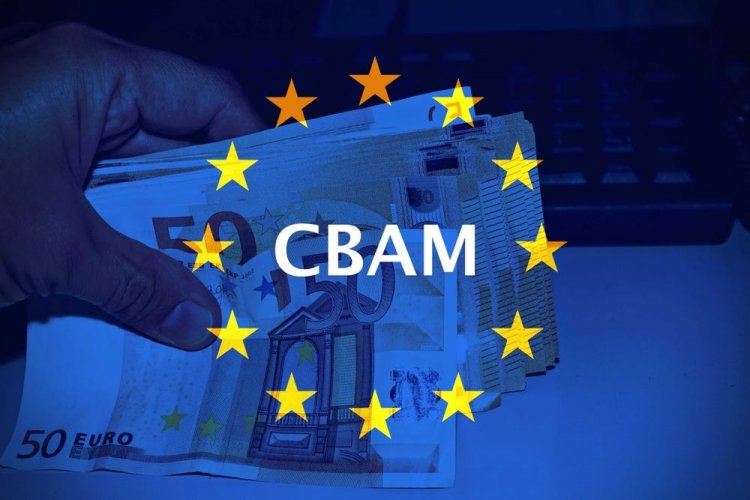On October 17, Regulation 2025/2083 simplifying and strengthening the carbon border adjustment mechanism (CBAM) was published in the Official Journal of the European Union and of the Council. The CBAM simplification regulation fully entered into force on October 20.
The text of this document was published on the EU official website.
Key changes for entrepreneurs:
-
Exemption from de minimis obligations
If an importer imports less than 50 tons of goods subject to the CBAM, such as steel, aluminum, cement, and fertilizers, during a calendar year, it is exempt from reporting, declaring emissions, and submitting CBAM certificates.
However, if an entrepreneur exceeds the annual emissions limit of 50 tons, then CBAM procedures will apply to all imports for the year, not just to the exceedance of the 50-ton limit.
-
Annual review and adjustment of the single emission threshold
The European Commission will review the 50-tonne cap threshold annually to ensure that 99% of the embodied emissions in imported CBAM products remain within the scope of the carbon tax.
-
Monitoring
The European Commission and national authorities will be able to monitor compliance with the single carbon threshold and will exchange a list of importers exceeding 90% of the single emissions limit through the CBAM register.
If an importer exceeds the single carbon threshold without being an authorized CBAM declarant, penalties of 3 to 5 times the standard fine of €100 per ton of emissions will apply. The fine may be reduced if the importer exceeds the single threshold by no more than 10%.
The payment of the fine releases the importer from any further obligations to file a CBAM declaration and waive the import certificates.
-
CBAM authorised declarants
Importers expecting to exceed the single carbon threshold must apply for CBAM authorized declarant status before exceeding the limit.
In particular, importers and indirect customs representatives who have applied by March 31, 2026, may temporarily continue to import CBAM goods until a decision is made.
Authorized CBAM declarants may delegate the submission of CBAM declarations to third parties, provided that the third party is registered in an EU Member State and has a registration and identification number of economic operators. In return, the authorized CBAM declarant remains responsible for compliance with CBAM obligations.
-
CBAM declaration
The deadline for submitting annual CBAM declarations and surrendering certificates has been set for September 30 of the year following import, providing additional time for compliance.
CBAM declarations must include the total quantity, embedded emissions, certificates to be surrendered (adjusted for the carbon price paid in third countries and free allocation of allowances for the use of the EU Emissions Trading System (ETS)).
The minimum requirement for the quarterly purchase of CBAM certificates is reduced from 80% to 50% of the embodied emissions in all CBAM goods imported since the beginning of the calendar year, adjusted for free allocation.
-
Calculation of embedded emissions
Embedded emissions can be determined using either default values or actual values verified by accredited persons. Verification is required only for actual values.
-
Carbon price deductions
From 2027, the European Commission may determine and publish in the CBAM register default carbon prices for third countries where carbon pricing rules are in force, using reliable, publicly available information and information provided by third countries.
-
CBAM Certificates
From February 1, 2027, CBAM certificates will be sold through a centralized platform to authorized CBAM declarants covering emissions embedded in goods imported in 2026.
Certificates purchased in 2027 for 2026 imports will be valued using the quarterly average of the EU ETS allowance prices in 2026. Thereafter, the prices of CBAM certificates will be equal to the average weekly closing price of the EU ETS auction.
The CBAM declarant must submit any request for repurchase by October 31 of each year during which the CBAM certificates were surrendered. However, CBAM certificates purchased in 2027 for 2026 imports can only be redeemed in 2027.
The limit for re-purchase of surplus CBAM certificates is aligned with the actual purchase obligation for the year (50% of embodied emissions in all imported CBAM products).
If an authorized declarant who purchased CBAM certificates in anticipation of exceeding the single mass-based threshold does not exceed it, all CBAM certificates must be re-purchased at the request of the authorized carbon tax declarant.
As of November 1 each year, the European Commission will cancel without compensation any CBAM certificates purchased during the year preceding the previous calendar year that remain in the account of an authorized CBAM declarant. However, as of November 1, 2027, the Commission will cancel any CBAM certificates purchased for embedded emissions for 2026 without any compensation.
-
Penalties
Penalties for exceeding ETS emissions (€100 for each ton of embedded emissions), with reductions possible for minor or unintentional errors.
Indirect customs representatives are liable for penalties if they act as authorized CBAM declarants.
-
Industry and Technical Clarifications
Accredited verifiers must submit a request for registration in the CBAM register to the competent authority of the Member State where their national accreditation body has been established.
The request must be submitted within two months of the accreditation being granted, but no earlier than September 1, 2026. The competent authority is responsible for registering the verifier's information in the CBAM register.
By the end of 2025, a full review of the CBAM is planned in accordance with Article 30 of the CBAM Regulation, which requires the European Commission to submit a report assessing the potential extension of the CBAM to additional products, such as organic chemicals and polymers, other precursors, in particular, transport services.
In May, the European Parliament's Committee on Environment, Climate Change and Food Safety approved the European Commission's proposal to simplify CBAM.
Also in June, the European Parliament and the Council of the EU reached a preliminary political agreement on the European Commission's proposal to simplify and strengthen the CBAM.
In particular, the European Parliament approved the CBAM simplification on September 10.





